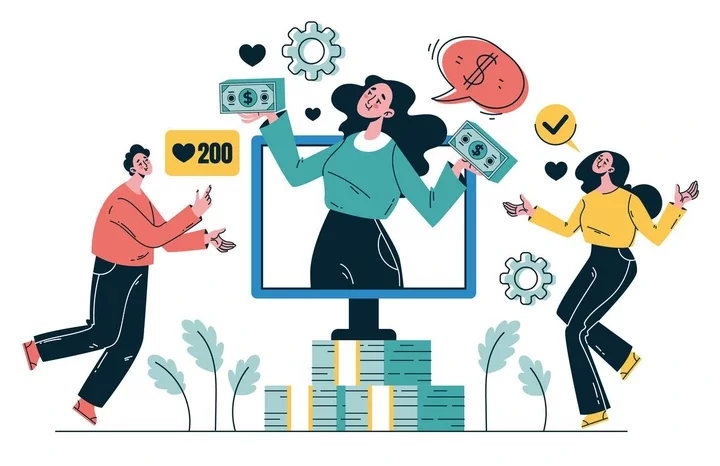The vast majority of us shop online
We are all influenced. According to the media regulator Ofcom, 84 per cent of adults now purchase products or services online. When shopping online, we're most likely to trust reviews from people who have previously bought the item, then friends and family, experts or journalists, and celebrities or influencers.
The pressure to keep up with the Joneses has only increased, thanks to social media making it easy to see how people globally - not just those in our immediate circle - are spending their money. It's skewing our perception of normal, and I hear it from my coaching clients all the time.
One client deactivated her Instagram. She said: "This has really helped as I'm not exposed to influencers and things I might want to buy. I find myself opening fewer new tabs on my phone to browse items I've seen on social media. It also helps me compare myself to others a bit less."
This client effectively introduced spending friction into her life by removing a tool - Instagram - that was previously available at her fingertips and leading her to spend money she couldn't afford on things she didn't need or even want.
'Normal' spending habits
Social media might convince you otherwise, but please know that most people don't make over their homes every season, and most people don't take multiple foreign holidays a year. That goes double if you have children, given that you're looking at spending at least £4000 for a week's summer holiday in Europe for a family of four in late June or early July - and that's outside the six-week school holiday period where prices skyrocket.

Of course, the concept of "normal" is skewed by your social circle. Even a millionaire will feel like a poor relation if their social circle is made up of billionaires. But here's what you need to remember about social media: it's easy to compare your output with others, but you don't know their input - as in, how they're funding the lifestyle you're seeing online.
I asked people how social media is influencing their spending habits. Responses ranged from smaller spends on matcha lattes to coveting other people's dreamy kitchen islands and deciding that skiing in Japan is a must because Europe is "so over" - all based on what they've seen on social media.
And I'm not immune, as my LED face mask experience shows. We are all influenced in ways big and small. So how can you take control of your spending habits?
Reclaim your spending
Get clear on what matters to you and how you manage your money in line with this. Ask yourself: What matters to me most in life? Then consider: How do I want to spend, save, and invest my money in line with this?
Give every pound a job. It's easier to say yes to the things that matter to you and no to the things that don't if you make a plan for your money.
Pause before buying. You can give yourself 24 hours to consider a purchase. Your pause can also involve physical movement - a mini-workout or a walk around the block so you can get outside, move your body and clear your head before making any purchase.
Don't go broke trying to look rich. It's something my brother shared with me a couple of years ago when we were talking about the pressure to keep up with the people around you. And really, it's a motto for life.
Social media isn't all bad.
















Comments